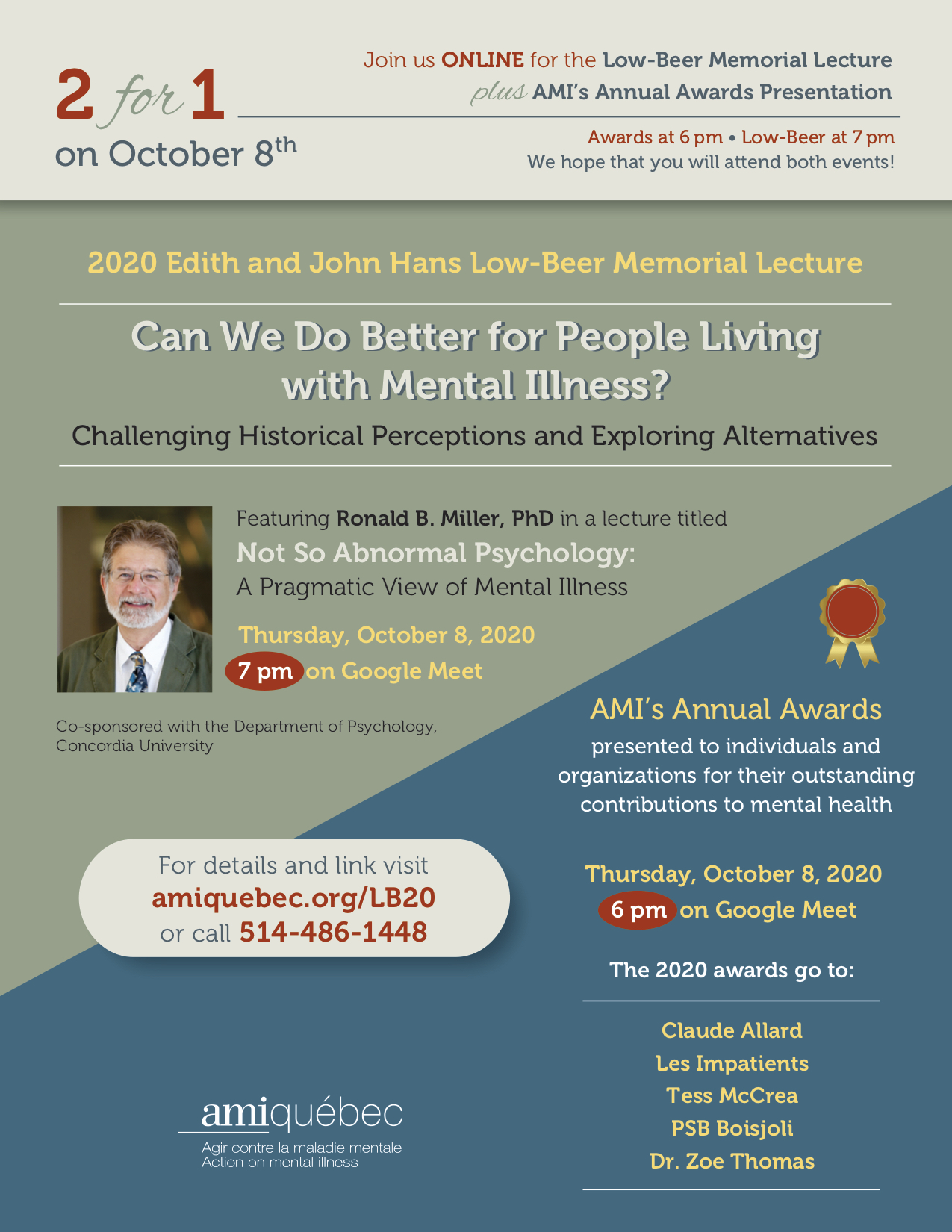2 for 1 on October 8th: Join us online for the Low-Beer Memorial Lecture & Awards presentation
No registration necessary–just click on the button above to join at 6 or 7pm on October 8th.
We will also be broadcasting live on Facebook. If you’d rather join us there, click HERE.
Please note: due to the COVID-19 pandemic, the lecture and awards will be held online via your computer.
Google Meet is easy to use. Click HERE if you need assistance.
Email registration@amiquebec.org or call 514-486-1448 with any questions.
And the 2020 awards go to…
Every year we recognize individuals and organizations who stand out in their contributions to mental health. They work hard to help improve the lives of families and people living with mental health issues. The awards are usually presented during our Annual General Meeting in June, but they were postponed due to COVID-19. Instead, we invite you to join us at 6pm on October 8th on Google Meet to celebrate our recipients!
Awards will be presented to:
Claude Allard
AMI-Quebec Award for Exemplary Service
Les Impatients
Ella Amir Award for Innovations in Mental Health
Tess McCrea
AMI-Quebec Volunteer of the Year
PSB Boisjoli
Extra Mile Award
Dr. Zoe Thomas
Exemplary Psychiatrist Award
The 2020 Low-Beer Memorial Lecture
Challenging historical perceptions and exploring alternatives
The lecture, titled: Not So Abnormal Psychology: A Pragmatic View of Mental Illness will feature Ronald B. Miller, PhD, a professor of psychology at Saint Michael’s College in northern Vermont and the author of Not So Abnormal Psychology: A Pragmatic View of Mental Illness (2015), and Facing Human Suffering: Psychology and Psychotherapy as Moral Engagement (2004).
In his talk, Dr. Miller will challenge the historical perception that mental illnesses are genetically-determined malfunctions in the brain, and that psychotropic medications and cognitive-behavioural interventions are the only scientifically appropriate tools for symptom management. Dr. Miller offers alternative conceptualizations and treatments for psychological problems, including mental illnesses and developmental disorders. He suggests that alternative treatment modes that have too often been denigrated or ignored have long produced successful outcomes. In doing so, Dr. Miller challenges reigning orthodoxies, such as our tendency to pathologize psychological difficulties and to downplay or ignore subjective experiences of human suffering.



